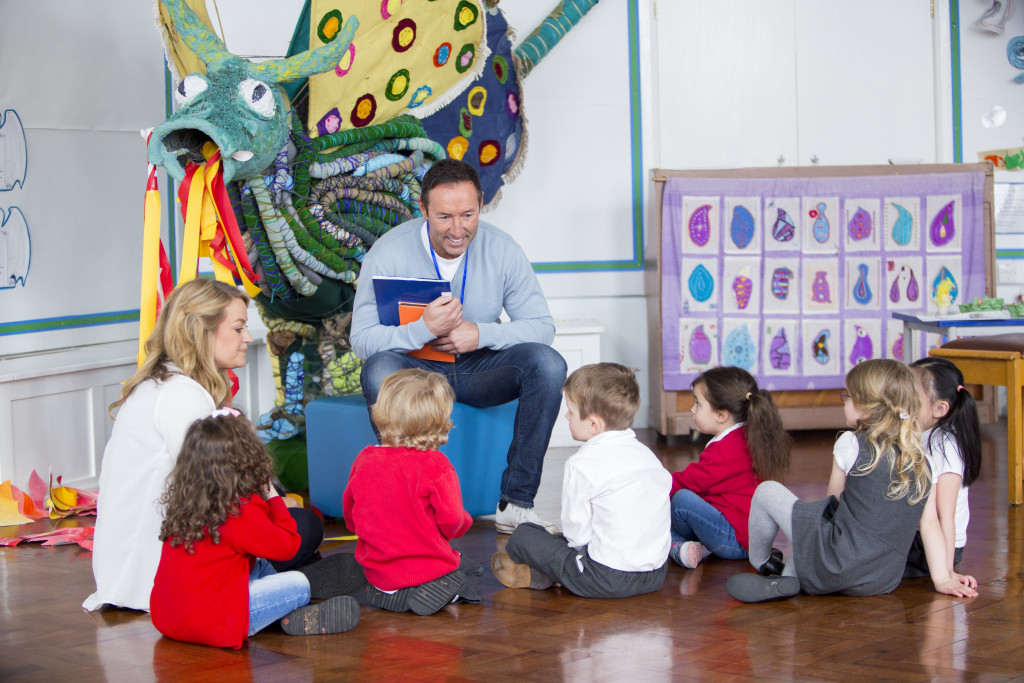Teaching can be challenging when you need to look after every individual and ensure they follow your instructions. Children can be troublesome and can give you a hard time by not paying attention to the class. Moreover, they might easily get bored with the regular classes and find ways to avoid studies. You can scold them for their wrongs, but it cannot solve the problem.
Here, you can think of different teaching ideas to keep the children attentive and interested in the classroom. Using various teaching processes gives the students better opportunities to perform well and motivates them to learn with enthusiasm. Therefore, here are some innovative ideas that you can use to provide effective teaching to your students.
Make the Classroom Appealing
Many schools have adopted the method of making the classroom visuals more inviting and exciting for the students. An appealing classroom can help you gain their attention and use it to your advantage. For this, you can take different steps, such as increasing the curb appeal, blend study with games, etc. It is advisable to consult the best architecture firms in town and hire a team for this innovative project. Discuss details that you want to incorporate in the classes. You can also ask for suggestions as they can best help you in this regard.
Some ideas that you can use include:
- A cube concept room
- Nubo chats wood-themed room for elementary children
- Graphics to reinforce the community and engagement of students followed by adding technological advancements
Such innovative and appealing architecture can make the teaching more functional and enjoyable for the students.
Make It Creative and Fun
Make your teaching style creative by including playful games or fun quizzes that will excite their minds. When there is an involvement of games and puzzles, children automatically pay more attention. Puzzle games are good ways to make children learn about different literature words and develop problem-solving skills while playing. These small, healthy competitions encourage them to perform well in the class. You can also incorporate creative elements into your subjects and promote their ideas about any particular topic giving them the freedom to explore more.
Real-life Learning
Real-life examples are the best when it comes to helping students to learn something quickly. They will also make your learning material more fun compared to a plain theory class. You can even share real-life experiences as examples that enrich the learning process. These real-life demonstrations can be helpful in engagement and will be easier to understand and remember for a longer time.

Class Without a Classroom
Sometimes it is a great idea to take the children out of the regular classroom. You can organize a special class under the tree, in the playground, or the school’s garden. This activity is generally done for physical education lessons or science lessons so that the children will have a better understanding. Moreover, it will increase the students’ excitement to learn.
Role-play
Experience is the most prominent teacher, they say, and it’s true. So why not incorporate the same in the education system? Teaching methods that include role-plays are excellent ways to build confidence and interpersonal skills in children. Small classroom skits or literature lessons role-plays are some examples that are crucial for students’ development.
Add Audio-video Teaching
Children can better remember things that they see and hear rather than the things they read. Incorporating video concepts into your teaching can help their imagination grow deeper about the subject. For example, literature dramas can be confusing to remember but can be easily understood through a movie. Students find it easier to remember the character names, their character sketches, and much more shortly.
Make Groups and Clubs
Making school clubs lets you know about the students’ interest field. When they work and spend time with like-minded people in the club, they become more creative and passionate about what they love. For example, if a student loves music, or writing poetry, the music club and the literary club respectively can boost their interests. Moreover, spending time with a group of the same interests increases their confidence and communication skills.
On the other hand, making study groups can also be incredibly beneficial to the students as they can work in a team and learn collectively from each other’s point of view. In addition, you can share your opinions as an individual and can even learn from their perspectives.
The teaching and learning process can be more effective and efficient with several innovative ideas that interest the students and develop their skills. Hence, the teachers must come out of the plain lectures that can bore the child and follow methods such as mentioned above.

